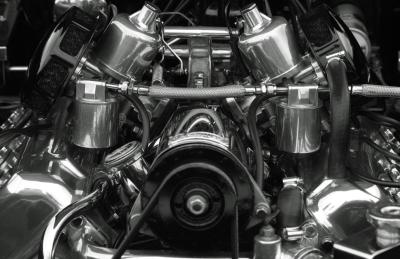
Exhaust blow-by is the term used to describe combustion gases inside an engine that leak past the piston ring seals and into the engine crankcase. To a degree, blow-by is normal in a healthy engine and is the reason that we have mechanisms such as the PCV (positive crankcase ventilation) system. There are, however, reasons that blow-by may occur to a much larger degree than is healthy.
Piston rings are intended, along with engine oil, to provide a seal between the piston head and the cylinder walls of internal combustion engines. If these rings get too worn, the combination of oil and piston ring will fail to form a good seal. This allows combustion gases to push past the piston rings and into the crankcase. Piston rings naturally wear over time, and blow-by will increase over the life of the engine. One of the fastest ways to increase piston ring seal surfaces is to allow dirt in the engine. Dust and dirt are normally removed by the air filter, but if they are not removed for any reason they begin to wear down both the piston rings and cylinder walls. The reason for this is that both dust and dirt contain tiny pieces of minerals and other objects that are capable of slowly filing away at the surfaces of the engine
For different reasons, engines will occasionally overheat. Both the engine block and the cylinder walls heat up to higher temperatures than they were engineered for. Because the block and walls are made of different metals, and because these two materials heat up to different degrees, overheating can cause a warping of the engine components and an elongation of the cylinder walls. This elongation causes an egg shape into which the cylindrical piston head does not quite fit, causing blow-by.
Pistons are designed to move as closely as possible to straight up and down inside the cylinder. When they fail to move straight up and down, they sit at a slight angle inside the cylinder and scrape up and down the cylinder walls as they move. This position allows for slight air gaps during the compression and combustion strokes of the engine and leads to blow-by. This can be caused by improperly fitted pistons, piston rings or stretched connecting rods.
To a small degree, and for a very short period of time, a lack of engine oil will allow blow-by. Oil is necessary for the seal in the compression chamber. Although this is a cause of blow-by, it is relatively insignificant since running an engine without oil will quickly end in its demise.